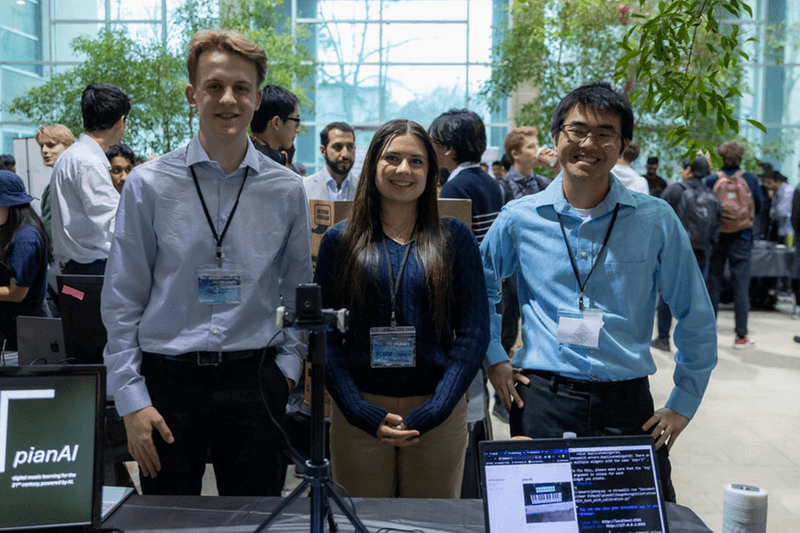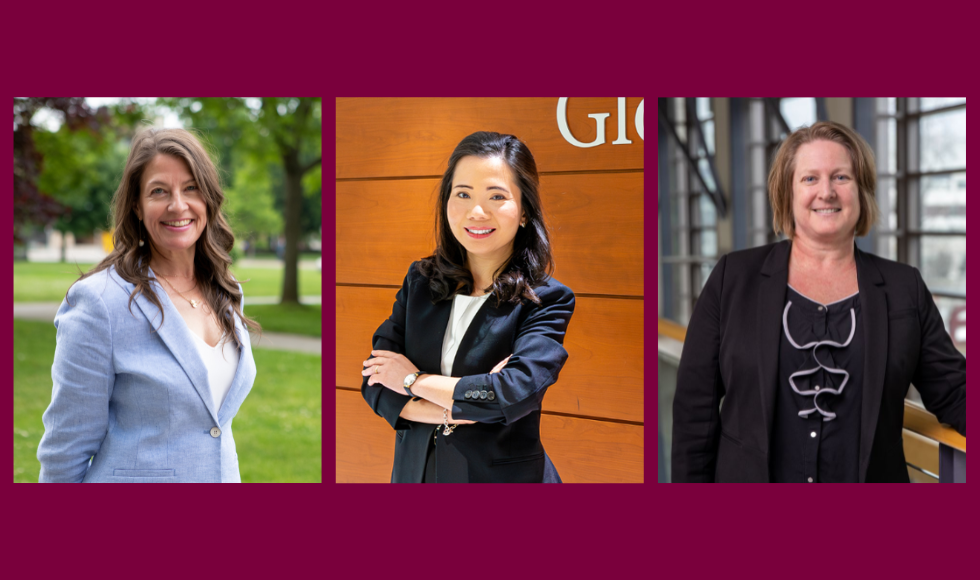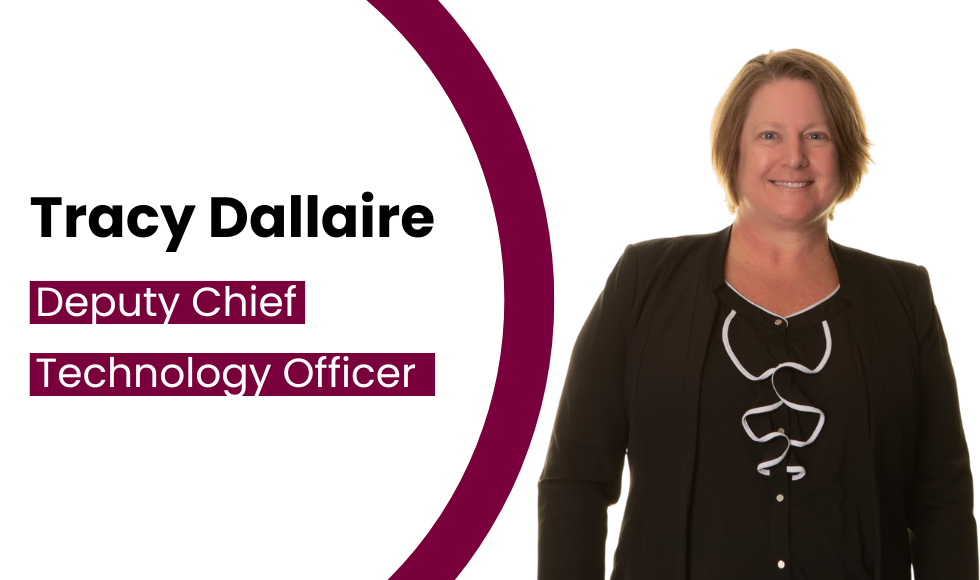McMaster students leverage AI to bring music lessons into the future.

As Artificial Intelligence (AI) continues to stretch and reshape the foundational concepts of technological possibility in our lives and workplaces, students in the AI Society at McMaster University are leveraging this technology to create new and wonderful ideas for the future.
The McMaster AI Society brings together students who look to learn and leverage AI tools by creating meaningful projects, competing in friendly competitions, participating and hosting events and learning about AI through tutorials and workshops.
“I was drawn to the AI Society due to its innovative nature. This field is somewhat new to me, presenting an exciting opportunity for exploration and expanding my knowledge on the subject,” said McMaster AI Society member Nicole Sorokin (BASc, computer science). “I’m interested in simplifying tasks and offering new opportunities that address complex challenges in creative and diverse ways.”
A new way to learn music?
One of those complex challenges includes PianAI, a new project that looks to take Piano lessons into the future with AI, computer vision, and audio data processing. Developed by the group over the past year, PianAI provides users with MIDI-based feedback, like sound tones, to correct hand positioning, note accuracy, and volume.
Born out of personal experiences amongst group members, like project lead Ethan Walsh (BE, software engineering), PianAI looks to find a middle ground between screen-based learning tools and hands-on tutoring.
“Mobile apps and other digital solutions lack the in-depth feedback required to see progress when learning the piano, yet traveling to a music teacher for in-person lessons is sometimes out of budget or range for students,” said Walsh.
By using computer vision to scan the fingers on the keys, coupled with the tonal MIDI feedback, PianAI enables users to better understand position and form. “Hand technique is an integral part of playing the piano and must be understood well before moving beyond the basics of the instrument,” noted Walsh.
See how it works below:
PianAI at CUCAI
Walsh, Sorokin and the rest of the team (Jayesh Anil, Thomas Overall, John Quien, Tharshigan Vithiyananthan and Angela Wang) recently presented PianAI at the annual Canadian Undergraduate Conference on AI (CUCAI) hosted at Queens University in Kingston, Ontario.
CUCAI brings together students from various universities across Canada and beyond and provides a platform for students to showcase their AI projects, attend workshops, and listen to keynotes from industry professionals.
“It was fascinating to hear the insights on AI from various speakers. The topics helped change our idea of AI, showing it as a tool for success much like previous industrial changes like the steam engine,” said Quien (BE, computer engineering). “The projects were incredibly varied, ranging from AI basketball trainers to drones with object detection. It was also a great opportunity to get feedback from students outside of the McMaster AI Society.”
While PianAI remains a work-in-progress (ideally kept open-source), the members of the McMaster AI Society will continue to develop new projects and be inspired by the rapid growth of the industry and their place as changemakers within it.
“It’s exciting to watch the growth of AI development, as unique products arise in this industry at an exponential rate,” said Sorokin. “It demonstrates human creativity and the endless possibilities of technology. I’m inspired by all of this and excited to see what the future holds as we continue to push the boundaries of AI.”
News CategoryRelated News
News Listing

Innovation Meets Leadership: McMaster and Cisco Spotlight Women’s Health and Technology
News Category
November 6, 2025

October 1, 2025

